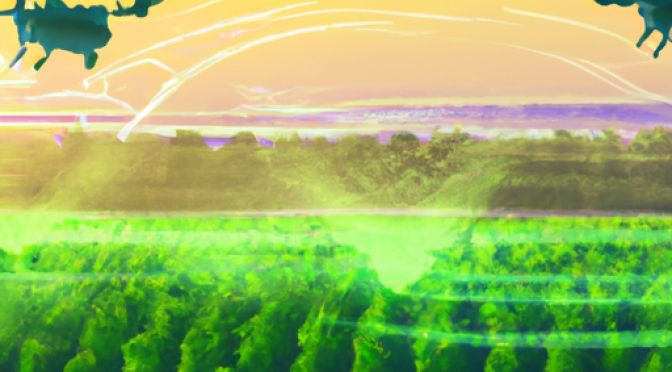Introduction
Precision farming, also known as precision agriculture, is a modern farming approach that utilizes technology to optimize crop production and increase efficiency. With the advent of Artificial Intelligence (AI), precision farming practices are being revolutionized, leading to significant advancements in the agricultural industry.
Enhanced Crop Monitoring and Management
AI-powered systems enable farmers to monitor and manage their crops more effectively. Through the use of drones, satellite imagery, and sensors, AI can collect real-time data on various crop parameters such as soil moisture, nutrient levels, and plant health. This data is then analyzed to provide actionable insights, allowing farmers to make informed decisions regarding irrigation, fertilization, and pest control.
Predictive Analytics for Yield Optimization
AI algorithms can analyze historical and real-time data to predict crop yields accurately. By considering factors such as weather patterns, soil conditions, and crop genetics, AI can provide farmers with valuable insights into optimal planting times, crop rotation strategies, and yield predictions. This information helps farmers optimize their production processes, reduce waste, and maximize overall yield.
Automated Machinery and Robotics
AI-powered machinery and robotics are transforming the way farming operations are conducted. Autonomous vehicles equipped with AI technology can perform tasks such as planting, harvesting, and spraying with precision and efficiency. These machines can navigate fields, detect obstacles, and adjust their operations based on real-time data, reducing labor costs and increasing productivity.
Smart Irrigation and Resource Management
AI-based irrigation systems can analyze data from various sources, including weather forecasts, soil moisture sensors, and crop water requirements, to optimize water usage. By delivering the right amount of water at the right time, these systems help conserve water resources and prevent over-irrigation. AI also enables efficient management of other resources, such as fertilizers and pesticides, by providing accurate dosage recommendations based on crop needs.
Challenges and Considerations
While AI offers numerous benefits to precision farming practices, there are also challenges to overcome. Data privacy and security concerns, as well as the need for reliable connectivity in rural areas, are important considerations. Additionally, the adoption of AI technologies may require training and upskilling of farmers to effectively utilize these tools.
Conclusion
AI is reshaping the future of precision farming practices by revolutionizing crop monitoring, predictive analytics, automation, and resource management. With the ability to collect and analyze vast amounts of data, AI empowers farmers to make data-driven decisions, optimize yields, and contribute to sustainable agriculture. As technology continues to advance, the integration of AI in precision farming will play a crucial role in meeting the growing global demand for food while minimizing environmental impact.

